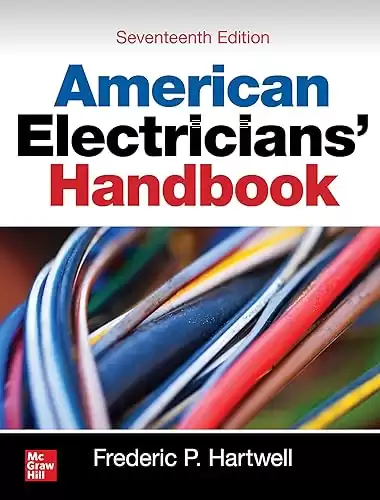Becoming a union electrician is a rewarding career choice that offers excellent pay, benefits, and job security. This blog post will guide you through the steps to become a union electrician, including the necessary qualifications, the apprenticeship process, and the benefits and challenges of union membership. Whether you’re just starting out or looking to advance your skills, you’ll find valuable information to help you succeed in this profession.
Table of Contents
Toggle
What Is a Union Electrician?
A union electrician is an electrician who is a member of a labor union, like the International Brotherhood of Electrical Workers (IBEW). Union electricians go through extensive training and apprenticeship programs to learn the trade. To become a union electrician, you first need to meet the basic qualifications. This typically means having a high school diploma and being over 18 years old. You’ll then go through a multi-year apprenticeship program, where you’ll get paid while gaining on-the-job training and taking technical courses. Apprenticeships usually last 4-5 years.
Once you complete the program, you become a journeyman electrician. This means you can do most kinds of electrical work on your own. However, many electricians choose to continue their training to become master electricians, who have more advanced skills and can supervise crews. The benefits of being a union electrician are many.
You’ll have access to ongoing training to keep your skills up to date. You’ll also typically have higher pay, better benefits, and more job security than non-union electricians. The union helps ensure safe working conditions and fair treatment for members. Of course, there are some downsides. Union dues need to be paid. Jobs may be limited by the union’s jurisdiction. And some people don’t like the strict rules that come with being part of a union.
Master the journeyman electrician licensing exam with 'Journeyman Electrician Exam Secrets Study Guide.' This comprehensive resource covers essential topics such as electrical theory, safety standards, and the National Electrical Code, providing invaluable preparation for aspiring electricians seeking licensure. Get ready to ace your exam and embark on a successful career in electrical work.
Benefits of Being a Union Electrician
Being a union electrician has some major perks. For starters, the pay and benefits are typically better than non-union jobs. As an apprentice, you’ll earn a decent wage while learning the trade. Once you become a journeyman, the median pay is over $56,000 annually. And with years of experience, you can make $90,000 or more.
Union electricians also receive excellent benefits like health insurance, retirement plans, and paid time off. The unions work hard to negotiate the best compensation and benefits for members. You’ll have more job security as a union electrician. The unions try to provide steady work for electricians and protect members’ jobs. There are also opportunities for career progression, like becoming a foreman, project manager, or moving into training.
Union membership provides a strong support system. The union protects workers’ rights and helps resolve any issues on the job. You’ll also gain valuable connections with other electricians. The brotherhood of workers can last your whole career. Being in a union means access to top-notch training. Apprentices go through a multi-year program to learn the latest skills. Even after becoming a journeyman, you can take additional courses to expand your knowledge. The training and certification provide a solid foundation for your work.
The "American Electricians' Handbook, Seventeenth Edition" is a practical, on-the-job resource packed with essential information on current energy-efficient technologies, safety methods, and industry standards. With detailed explanations, diagrams, and calculations, it's an indispensable tool for electricians at all skill levels.
Applying to Join the Electrical Workers Union
To become a union electrician, you’ll need to apply for an apprenticeship with your local IBEW (International Brotherhood of Electrical Workers) union. This typically involves passing an aptitude test, interview, and background check.
Find Your Local IBEW Chapter
The first step is locating your nearest IBEW local union chapter. On the IBEW website, you can enter your zip code to find the local union that covers your area. Reach out to them to learn about their application process and requirements. Many accept applications year-round, while others only open up the process during select periods.
Pass the Aptitude Test
Most locals require you to take and pass the Electrical Training Alliance (ETA) aptitude test, which assesses your math, reading, and logical reasoning skills. The test is designed for those with a 10th-grade education, so brushing up on basic math and reading comprehension can help prepare you. Your local IBEW can provide details on when and where to take the test.
Go Through the Interview
If you pass the aptitude test, you’ll proceed to an interview with members of the local union. Be prepared to discuss why you’re interested in becoming an electrician and union member. Come ready to highlight any relevant skills, experience, or enthusiasm you have for the trade. Your professionalism, communication skills, and commitment to excellence will be evaluated.
Background Check
Finally, the local union will conduct a background check to verify the information on your application. As long as everything checks out, you’ll receive an official acceptance into their apprenticeship program. Congratulations, you’re now on your way to becoming a union electrician!
The application process can take time, so start preparing and connecting with your local IBEW as soon as possible. With hard work and dedication, you’ll complete your apprenticeship and become a fully certified journeyman electrician. Best of luck!
Tips for Succeeding as a Union Electrician
To thrive in this career, focus on developing the right skills and mindset.
Build a Strong Foundation
Complete a training program at a trade school or technical college. Earn certifications in areas like wiring, safety standards, and blueprint reading. While apprenticeships and on-the-job training are valuable, formal education shows your commitment to excellence.
Develop a Safety-First Mentality
As an electrician, safety is your top priority. Familiarize yourself with occupational safety procedures and always put them into practice. Wear protective gear, use proper tools, and double-check that all circuits are deactivated before working on them. Shortcuts can have serious consequences in this line of work.
Stay Up-to-Date with Technology
The field of electrical work is constantly evolving. Make continuous learning a habit so you can install and maintain the latest systems. Study new regulations and best practices as well. Membership in a professional organization is a great way to stay up to speed.
Build Strong Relationships
Develop good working relationships with contractors, builders, and suppliers. Networking can lead to new job opportunities and mentorship. Join your local union and get involved in their events. Cultivate teamwork and communication skills since most electricians work as part of a crew.
Maintain a Positive Attitude
There will be difficult challenges in this career, like long hours, hazardous conditions, and demanding physical labor. Approach each day with a constructive outlook. Take pride in your work and appreciate the importance of the service you provide. A positive attitude will make you an asset to any team.
Master the fundamentals of electrical systems with 'Delmar's Standard Textbook of Electricity.' Ideal for journeyman electricians, this concise guide covers essential principles for installing, repairing, and troubleshooting electrical components.
How to Become a Union Electrician
So there you have it. Becoming a union electrician takes some work, but if you have the drive and determination, it’s an achievable goal. With the right training, certifications, and union sponsorship, you’ll be on your way to a rewarding, well-paid career. Just remember to be patient during the application process and willing to put in the sweat equity of an apprenticeship. But once you get through it all, you’ll have job security, great benefits, and the satisfaction of plying your trade as a card-carrying member of the electrical workers’ union. The juice will be worth the squeeze.
Frequently Asked Questions
What Qualifications Are Needed To Become A Union Electrician?
To become a union electrician, you typically need a high school diploma and must be over 18 years old. An apprenticeship program provides the necessary training and experience. Check out our blog post on The Best Electric Chainsaws on the Market for tools electricians might find useful.
What Are The Benefits Of Being A Union Electrician?
Union electricians often enjoy higher pay, better benefits, and more job security than non-union electricians. For more information on job benefits and comparisons, see our post on How Much a Plumber Apprentice Makes.
How Long Does It Take To Become A Union Electrician?
The apprenticeship program usually lasts 4-5 years. During this time, you’ll gain on-the-job training and take technical courses. Learn about other skilled trades and their requirements in our article Ultimate Power Tools Guide: What’s the Drill with Power Tools?
What Is The Process Of Applying To The Electrical Workers Union?
The application process involves finding your local IBEW chapter, passing an aptitude test, interviewing, and undergoing a background check. For more insights on similar application processes, read our post on How to Become a Ranch Hand.
What Kind Of Ongoing Training Do Union Electricians Receive?
Union electricians have access to continuous training to keep their skills up to date, including courses and certifications. Explore related continuous learning benefits in our post on The Best Electric Mowers.










